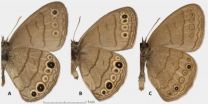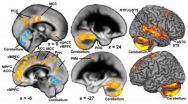(Press-News.org) New research from the University of Adelaide has delved into the reasons why some people are unable to break free of their delusions, despite overwhelming evidence explaining the delusion isn't real.
In a new paper published in the journal Frontiers in Psychology, University of Adelaide philosopher Professor Philip Gerrans says dreams and delusions have a common link – they are associated with faulty "reality testing" in the brain's higher order cognitive systems.
"Normally this 'reality testing' in the brain monitors a 'story telling' system which generates a narrative of people's experience," Professor Gerrans says.
"A simple example of normal reality testing is the person who gets a headache, immediately thinks they might have a brain tumor, then dismisses that thought and moves on. Their story episode 'I might have brain cancer' gets tested and quickly rejected.
"In someone who has problems with reality testing, that story might persist and may even be elaborated and translated into action. Such people can experience immense mental health difficulties, even to the point of becoming a threat to themselves or to others," he says.
In his paper, Professor Gerrans discusses delusions triggered by feelings of familiarity and unfamiliarity, such as the "Capgras delusion" – the delusion of "doubles". One example is of a man who, after serious head injury following a motor vehicle accident, returned home from the hospital after a year only to state repeatedly that his family had been replaced by impostors.
"His family looked familiar but didn't feel familiar, and the story in his head made sense of that feeling. It didn't matter how much people tried to point out that his family was the same, in his mind they had been completely replaced by impostors," Professor Gerrans says.
He says in the "Fregoli delusion", people think they're being followed by a familiar person in disguise as a way of coping with a feeling of familiarity evoked by seeing a stranger.
"People also experience feelings of familiarity and unfamiliarity in déjà vu – a sense that a new place is strangely familiar, and the reverse, jamais vu – a sense of extreme unfamiliarity evoked by a familiar place. However, such feelings do not lead to delusion in people whose reality testing is intact."
Professor Gerrans says better understanding this reality testing system could help to improve outcomes for people living with such difficulties.
"Trying to treat someone experiencing these delusions by telling them the truth is not necessarily going to help, so new strategies need to be developed to assist them. Ultimately, that's the aim of this work – to help explain the nature of reality testing in order to help people find a way of working through or around their delusions so that the delusions no longer adversely affect their lives."
INFORMATION:
Professor Gerrans's new book, The Measure of Madness. Philosophy and Cognitive Neuropsychiatry (MIT Press), will be published this year.
What's the difference between a dream, a delusion and an hallucination? Professor Gerrans explains:
Dream: The images, sensations and thoughts we experience during sleep. In dreams we simply have experiences, we don't have beliefs about experience because "reality testing" systems are not active.
Delusion: An irrational belief at odds with reality maintained in the face of obvious contrary evidence and logical argument.
Hallucination: The apparent perception of an object not actually present.
Déjà vu: The feeling that you have previously experienced a situation which is in fact unfamiliar. Caused by an erroneous "sense of familiarity".
Jamais vu: The feeling that a familiar situation has not been experienced before. Caused by fleeting loss of the "sense of familiarity".
Reality Testing: The ability to determine whether a thought or perception accurately represents reality. Largely absent in dreams, compromised in delusion.
Professor Philip Gerrans
Discipline of Philosophy
School of Humanities
The University of Adelaide
Phone: +61 8 8313 5297
Email: philip.gerrans@adelaide.edu.au
Dreams, deja vu and delusions caused by faulty 'reality testing'
2014-02-19
ELSE PRESS RELEASES FROM THIS DATE:
A challenge to the genetic interpretation of biology
2014-02-19
A proposal for reformulating the foundations of biology, based on the 2nd law of thermodynamics and which is in sharp contrast to the prevailing genetic view, is published today in the Journal of the Royal Society Interface under the title "Genes without prominence: a reappraisal of the foundations of biology". The authors, Arto Annila, Professor of physics at Helsinki University and Keith Baverstock, Docent and former professor at the University of Eastern Finland, assert that the prominent emphasis currently given to the gene in biology is based on a flawed interpretation ...
Two new butterfly species discovered in eastern USA
2014-02-19
Butterflies are probably best-loved insects. As such, they are relatively well studied, especially in the United States. Eastern parts of the country are explored most thoroughly. First eastern US butterfly species were described by the father of modern taxonomy Carl Linnaeus himself, over 250 years ago. For the last two and a half centuries, naturalists have been cataloguing species diversity of eastern butterflies, and every nook and cranny has been searched. Some even say that we learned everything there is to know about taxonomy of these butterflies.
Discovery of ...
Targeted treatment for ovarian cancer discovered
2014-02-19
Researchers at Women & Infants Hospital of Rhode Island have developed a biologic drug that would prevent the production of a protein known to allow ovarian cancer cells to grow aggressively while being resistant to chemotherapy. This would improve treatment and survival rates for some women.
The work coming out of the molecular therapeutic laboratory directed by Richard G. Moore, MD, entitled "HE4 (WFDC2) gene overexpression promotes ovarian tumor growth" was recently published in the international science journal Scientific Reports, a Nature publishing group.
"We ...
UNH research: Most of us have made best memories by age 25
2014-02-19
DURHAM, N.H. – By the time most people are 25, they have made the most important memories of their lives, according to new research from the University of New Hampshire.
Researchers at UNH have found that when older adults were asked to tell their life stories, they overwhelmingly highlighted the central influence of life transitions in their memories. Many of these transitions, such as marriage and having children, occurred early in life.
"When people look back over their lives and recount their most important memories, most divide their life stories into chapters ...
How stick insects honed friction to grip without sticking
2014-02-19
When they're not hanging upside down, stick insects don't need to stick. In fact, when moving upright, sticking would be a hindrance: so much extra effort required to 'unstick' again with every step.
Latest research from Cambridge's Department of Zoology shows that stick insects have specialised pads on their legs designed to produce large amounts of friction with very little pressure. When upright, stick insects aren't sticking at all, but harnessing powerful friction to ensure they grip firmly without the need to unglue themselves from the ground when they move. ...
Addicted to tanning?
2014-02-19
BOWLING GREEN, O.—They keep tanning, even after turning a deep brown and experiencing some of the negative consequences. Skin cancer is among the most common, preventable types of the disease, yet many continue to tan to excess.
Research from Lisham Ashrafioun, a Bowling Green State University Ph.D. student in psychology, and Dr. Erin Bonar, an assistant professor of psychiatry at the University of Michigan Addiction Research Center and a BGSU alumna, shows that some who engage in excessive tanning may also be suffering from obsessive-compulsive (OCD) and body dysmorphic ...
A forgotten model of the universe
2014-02-19
A paper published in EPJ H provides the first English translation and an analysis of one of Albert Einstein's little-known papers, "On the cosmological problem of the general theory of relativity." Published in 1931, it features a forgotten model of the universe, while refuting Einstein's own earlier static model of 1917. In this paper, Einstein introduces a cosmic model in which the universe undergoes an expansion followed by a contraction. This interpretation contrasts with the monotonically expanding universe of the widely known Einstein-de Sitter model of 1932.
The ...
Family problems experienced in childhood and adolescence affect brain development
2014-02-19
New research has revealed that exposure to common family problems during childhood and early adolescence affects brain development, which could lead to mental health issues in later life.
The study led by Dr Nicholas Walsh, lecturer in developmental psychology at the University of East Anglia (UEA), used brain imaging technology to scan teenagers aged 17-19. It found that those who experienced mild to moderate family difficulties between birth and 11 years of age had developed a smaller cerebellum, an area of the brain associated with skill learning, stress regulation ...
Minor added benefit of indacaterol/glycopyrronium in COPD
2014-02-19
The drug combination indacaterol/glycopyrronium (trade name: Ultibro Breezhaler, Xoterna Breezhaler) has been approved since September 2013 for adults with chronic obstructive pulmonary disease (COPD). In an early benefit assessment pursuant to the Act on the Reform of the Market for Medicinal Products (AMNOG), the German Institute for Quality and Efficiency in Health Care (IQWiG) examined whether this drug combination offers an added benefit over the appropriate comparator therapy.
According to the findings, the drug combination is better at relieving breathing difficulties ...
Afatinib: Added benefit depends on mutation status
2014-02-19
Afatinib (trade name: GIOTRIF) has been approved in Germany since September 2013 for the treatment of adult patients with locally advanced or metastatic non-small cell lung cancer (NSCLC) with activating EGF receptor mutations who have not been treated with an EGF receptor tyrosine-kinase inhibitor (EGFR TKI). In an early benefit assessment pursuant to the Act on the Reform of the Market for Medicinal Products (AMNOG), the German Institute for Quality and Efficiency in Health Care (IQWiG) examined whether this new drug offers an added benefit over the appropriate comparator ...



